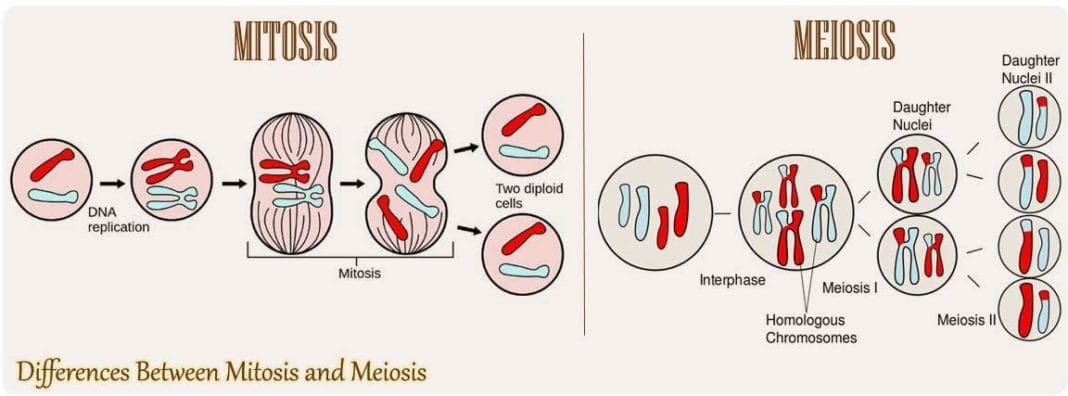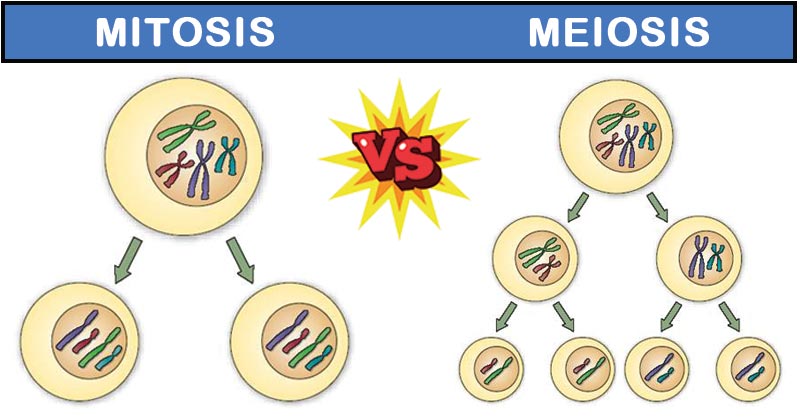16 Differences Between Mitosis And Meiosis Biology Diagrams Learn the key differences and similarities between mitosis and meiosis, two types of cell division in eukaryotes. Compare their phases, chromosomes, duration, function, and more with this table and diagram. Learn how mitosis and meiosis are different and similar nuclear division processes in eukaryotic cells. Mitosis produces two diploid and identical daughter cells, while meiosis produces four haploid and diverse daughter cells.

Learn the differences between mitosis and meiosis, two types of cell division, in terms of their alternate names, cells involved, type of reproduction, number of divisions, daughter cells, chromosome number, genetical identity, recombination, steps, and functions. See a table of 32 key differences and references for more information.

Mitosis vs. Meiosis: Key Differences, Chart and Venn Diagram Biology Diagrams
Learn how mitosis and meiosis are different forms of cell division in eukaryotes. Mitosis produces identical daughter cells for growth and repair, while meiosis produces non-identical daughter cells for sexual reproduction and genetic diversity.

Learn the key differences and similarities between mitosis and meiosis, two types of cell division that occur in living organisms. Mitosis is a form of asexual reproduction that produces identical cells, while meiosis is a form of sexual reproduction that produces genetically diverse cells. Learn the differences and similarities between mitosis and meiosis, two types of cell division. Mitosis produces diploid body cells, while meiosis produces haploid gametes with genetic diversity.

Mitosis vs Meiosis Biology Diagrams
Learn the differences between mitosis and meiosis, two types of nuclear division in eukaryotes. Mitosis produces genetically identical cells for growth and repair, while meiosis produces genetically distinct cells for sexual reproduction. Learn the key differences and similarities between mitosis and meiosis, two cell division processes in eukaryotes. Find out how they affect cell growth, repair, and reproduction, and see diagrams, charts, and examples.
